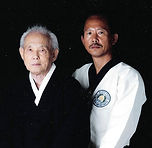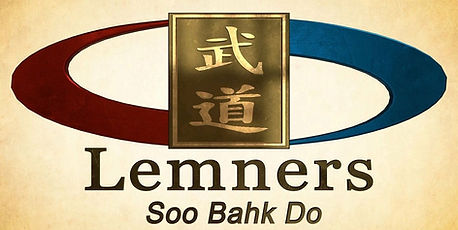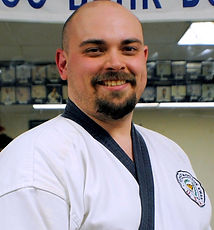Respect and humility Brothers in virtue
- Steven Lemner
- Aug 12, 2023
- 4 min read

Respect and humility
Brothers in virtue
존경 (jongyeong) Respect,
겸손한 (kyu son)Humility
By Steven Lemner
In our traditional martial art of Soo Bahk Do Moo Duk Kwan, the founder Hwang Kee, expanded on the 5 virtues of the Hwarang, also known as Hwarang Corps, and Flowering Knights of Korea. They were an elite warrior group of male youth in Silla, an ancient kingdom off the Korean Peninsula that lasted until the 10th century.
According to the Samguk Yusa, the Silla king, "concerned about the strengthening of the country ... again issued a decree and chose boys from good families who were of good morals and renamed them hwarang."
Educated to the highest standards and with a code of conduct that called for them to maintain honor in their encounters.
The foundational virtues of the Moo Duk Kwan and it’s historical background:
The Hwarang Code:
The hwarang also studied texts containing the rules of ethical behaviour. These writings are the Five Relationships, the Six Arts, the Three Scholarly Occupations, and the Six Ways of Government Service. Of these, the Five Relationships may be said to be a major component of the hwarang code of conduct. This was created by a monk by the name of Wongwang, and contained elements of Buddhism and Confucianism. The Five Relationships are as follows:
1. To serve the king with loyalty.
2. To serve one's parents with loyalty.
3. To always show loyalty to one's friends.
4. To never retreat in battle.
5. To never kill unnecessarily.
One of the founders Hwang Kee’s main objectives following postwar Korean and occupation by the Japanese, was to reestablish pride in the Korea people and restore its history.
The values and importance of this code was in total harmony with his art he was developing.
So he expanded them into the ten articles of faith we have as one of our foundational principles, along with the eight key concepts and five Moo Do values.
10 Articles of Faith
1. Be loyal to one’s country: Sacrifice to fulfill your duty to your country and your people. This is based on the spirit of Hwa Rang. (Respect of country)
2. Be obedient to one’s parent and elders: Children should be dutiful to their parents and parents should be charitable to their children. (Respect of parents)
3. Be loving to one’s husband or wife: From the mother’s body develops man’s happiness, as harmony and affection form love between the sexes. (Respect of spouse)
4. Be cooperative to your brothers: Hold together with cooperation and concord. (Respect of “brothers”)
5. Be respectful to elders: Protect the rights of the weak with courtesy and modesty.
(Respect of elders)
6. Be faithful to your teacher: Learn the truth through practice of duty, loyalty, and affection. (Respect of teachers)
7. Be faithful to friends: Honor friendship and be peaceful and happy with harmony and faith towards all mankind. (Respect of friends)
8. Face combat only in justice and with honor: Be able to distinguish between good and bad with fairness and rightfulness.
9. Never retreat in battle: Sacrifice for justice with capability and bravery.
10. Always finish what you start: Move to action with sureness and with hope. (Humility)
So seven of the ten surround the concept of respect. This is also in line with the founders mission statement he shared in 2000. To create better human relations. How are we able to create that without mutual respect.
We grow because of the dedication of our parents, teachers and elders. They guide us through their life’s experiences to ease our journey if we listen and follow.
Respect is earned because of our actions. Are they noble, just, and honorable? Do we “listen” to others to better understand them. We don’t have to agree, but we should respect their view. Then only through application and example will the “view” verify it. We only gain respect if we show respect. It’s a two way street.
Humility is the act of success while understanding some of those things are only temporary. It could a moment in time. The game we “won”. The next game could have a totally different out come.
I had a student, who later reached Dan level, that in school was always “A” honor role, head of the class, an excellent academic and athlete. Life was good, and she took great pride in her accomplishments and achievements as she should. She was also very humble. Always willing to help others.
However, during a Dan Pretest, things were not going well for her and a few areas caught her off guard. Things she thought would be easy turned out to be quite the challenge. It almost destroyed her.
She did not know how to handle it. This was first time in her life she was lost. So after a talk with her she realized she let her “pride” take over, and just thought it would be like everything else she did. It was a truly humbling event and life changing.
She now understood there were things that would not come as easy and she needed help. Her humility allowed her to become open. She also became aware of others that have successfully gone where at this point she was unable to.
She had a choice. To stop and avoid the frustration and confusion or approach it with humility to see that which she did not know. That’s what what she did and had a positive outcome. When she graduated collage she went into become an international rocket scientist!
Humility allows the self to grow with dignity and integrity, not needing the proof of an external show. Humility makes arrogance disappear. Humility allows lightness in the face of challenges. Humility as a value, at its highest, allows selflessness and dignity for a better world.
The highest example of the art and creating better human relationships through respect and humility to grow.
These two virtues help to balance ourselves in the world and keep us in check and avoid the ego. Sometimes when we are younger we don’t see the trials that those before us have overcome. It was only through their perseverance,determination, dedication and humility to grow that we are here today and enjoying those benefits. That must contain Respect and Humility to fully understand its evolution.
“Neh Gung Weh Yu”
(Inside strong, outside soft)
“Man is best when helping others, at his worst when bettering them “.
Hwang Kee, Chang Shi Ja






























Comments